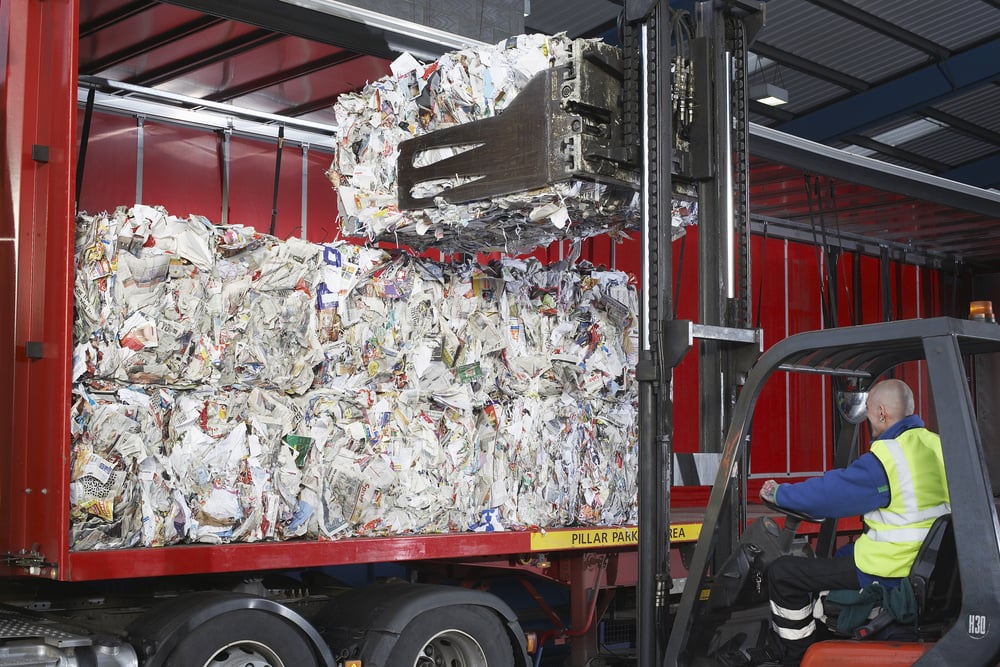
Smart Waste Journal
Join a growing community of industry leaders and eco-conscious businesses committed to making smarter choices for the environment and their bottom line.
Transforming Waste Management, One Habit at a Time: 9 Actions Communities Can Take
Did you know the average person in North America generates 4.9 pounds of trash per day? That's more than three times the global average of 1.6 pounds!
The encouraging news is that each of us has the power to make a difference. While large-scale action from governments and businesses is essential, our everyday choices also play a critical role in reducing waste and protecting the environment.
Read MoreEverything You Need to Know About Manufacturing Waste Management in 2025
Managing manufacturing waste might not always be your top focus, but neglecting it can result in significant costs for your business. Think about the build-up of solid, liquid, hazardous, or non-hazardous waste — each one draining resources and eating away at profits. Poor handling doesn’t just hurt your bottom line; it results in inefficiencies, potential fines, and missed sustainability targets that could tarnish your reputation.
Read MoreInnovative Waste Solutions to Boost Your Business’ Bottom Line
Effective waste management is no longer just about ticking off a box for compliance; it has become a practical and strategic way for businesses to cut costs while meeting sustainability goals. By revisiting how waste is handled, companies can uncover opportunities to save money, operate more efficiently, and reduce their environmental footprint.
This blog explores innovative waste management practices that can transform how businesses operate. From advanced technologies to employee involvement, these strategies empower organizations to...
Read MoreMaximizing Income Streams Through Effective Recycling
Today, the search for innovative methods to generate income while conserving resources has become more significant than ever. A traditional approach to addressing these needs has been the practice of recycling, often viewed through the lens of its environmental benefits.
However, recycling extends beyond this, presenting itself as a strategic opportunity for both businesses and individuals. By incorporating recycling practices effectively, not only can we contribute to environmental preservation, but we can also discover new avenues for...
Read MoreYour Guide to Medical Waste Management Companies
In healthcare, dealing with medical waste properly is super important for keeping everything running smoothly. It’s not just about following the rules; it’s a big responsibility that affects whole communities, not just hospitals. If waste isn’t managed well, it can put the health and safety of the public and the environment at risk. Teaming up with the right medical waste management companies can help healthcare providers tackle these important issues.
But finding the right partner can be tricky since there’s a lot to learn. This guide...
Read MoreTop Strategies to Reduce Your Waste Management Expenses
As waste management expenses rise, businesses face financial pressure that impacts both profitability and sustainability efforts. However, reducing waste management expenses presents an opportunity for significant savings and demonstrates commitment to environmental responsibility, attracting eco-conscious customers. By adopting efficient waste-reduction strategies, companies can enhance their financial stability while contributing to a greener planet. The following sections will outline practical strategies to effectively manage waste fees ...
Read MoreReducing Food Waste: Practical Tips for Households and Businesses
Food waste is an escalating challenge that affects not only the environment but also the economy and society at large. Every year, vast amounts of uneaten food are discarded, filling landfills, contributing to greenhouse gas emissions, and squandering the resources used to produce, transport, and store that food.
At both household and business levels, reducing food waste can lead to significant benefits. For one, it results in cost savings; by utilizing food more efficiently, consumers can lower their grocery bills and businesses can...
Read MorePlastic Alternatives: What Are the Best Biodegradable Options?
The widespread issue of plastic waste presents a considerable challenge to our environment, highlighting the urgent need to transition to biodegradable alternatives. Traditional plastics, while convenient, persist in ecosystems for centuries, causing detrimental effects on marine life and human health. As global waste accumulates, finding innovative waste management solutions becomes increasingly pressing. Biodegradable options offer a promising path forward, as they break down naturally, reducing the long-term impact on our environment. These...
Read MoreThe Future of Zero Waste: Strategies for Sustainable Living
In today’s world of mounting environmental challenges, the concept of sustainable living has emerged as a beacon of hope, guiding us toward a future that embraces more responsible waste management practices. Reducing waste isn't merely an option anymore—it's imperative with vast implications for both our environment and economy. The zero waste movement, which aims to minimize the waste sent to landfills and incinerators, offers a transformative path toward a healthier planet. By adopting zero waste strategies, communities and individuals can...
Read MoreBeyond the Bin: Innovative Ideas for Streamlined Waste Diversion
Whether managing waste for a commercial office building, residential complex, food production facility, or industrial plant, waste disposal challenges are becoming more complex. Facilities managers, property owners, manufacturers, and food businesses all face the common goal of reducing waste, cutting costs, and maintaining compliance with regulatory standards.
Read More.png?width=320&height=80&name=CERTIFIED%20Waste%20Solutions%20Logo%20Vector%20NO%20Tagline%20(4).png)



.jpg)
.jpg)
.jpg)
.jpg)
.jpg)
.jpg)
.jpg)
.jpg)
.jpg)

.jpg)
